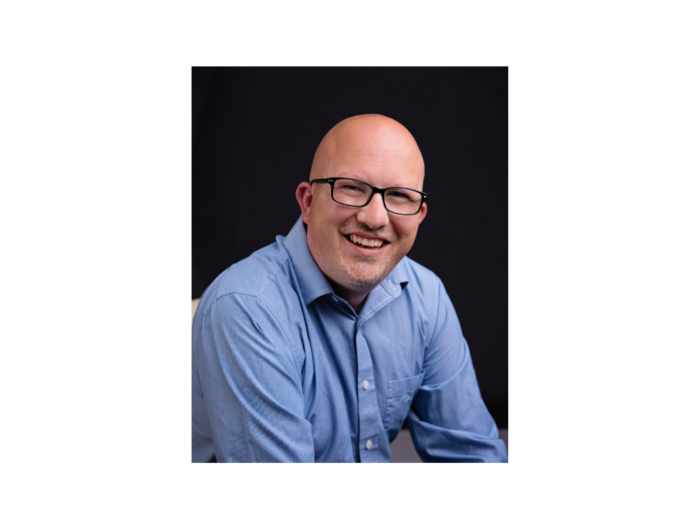I had the pleasure of reading Darren C. Demaree’s latest poetry collection, the luxury, in advance of our interview. Demaree’s eighteenth poetry collection, the luxury is like nothing else he’s published or I’ve read. Each of the fifty-nine poems contains three tercets, all without punctuation. Forgoing punctuation places real trust in the reader to interpret the sounds and flows in a manner that makes meaning to their own internal lyricism. And adherence to the same form allows Demaree to explore the many possibilities associated with the tercet, which feels less orderly than a couplet and less final than a quatrain. A form that reflects our current chaos at the edge of extinction.
These tercets reflect on the destruction of our natural world, the ramifications, and our emotions about it: rage, grief, and love. Through exploration of the everyday it asks big questions. What responsibility do we have to this world and the future? And how are we to treat this gift, this luxury of the present moment? the luxury creates an abundance, a tenderness, and a joy in the anxiety of destruction. It contrasts the epic climate saga with the ordinary joys of life. In doing so it brings new perspective to well-worn words like “run” and “not yet” as well as the lives of children and families
INTERVIEWER
Let’s begin at the beginning; how did you get started on the luxury?
DEMAREE
I was playing with prose poems; I find they are an effective way to use sound and repetition. I wanted to play with the reading of the poem. Take out the punctuation, so it can be read in different ways. Look at the different interpretations those readings could have. I was able to experiment and gain more freedom. For example, repetition is a great tool to change the rhythm of a poem. Repeating the same word gives the poem more momentum. A third repetition speeds up the poem even more. I like to try different combinations of repetition and hear how they impact how the poem sounds out loud.
INTERVIEWER
Reading these poems, I felt a sense of freedom unexpectedly and in a different way, which contrasts to the look of the poems because, scanning them, it’s clear there’s a precise form.
DEMAREE
Yes, this was different for me too in writing. This is the first time I used a strict syllable count since grad school. At that time, it wasn’t enjoyable, but I liked the process this time.
INTERVIEWER
So where did you find the ideas that the luxury explores?
DEMAREE
This was composed during the height of the pandemic. The whole process when we were all home from work and school and all the precautions and things we stopped doing. When everything slowed down, the impact we have on the environment became clear. The sky, the air, nature, the change was obvious. This climate crisis isn’t caused by anything else except us. I felt like I needed to capture that moment. There’s this feeling of guilt and complicity. I felt it. If you are not speaking out about climate change, then you are part of the problem. And so you have to say “Some of this is on me. I’ve caused this. I’ve benefited from this too.” And as I started to get to work on these feelings, the tercet form presented itself to me and I went with it.
INTERVIEWER
This is your sixteenth collection; why did you feel you needed to write this collection in particular?
DEMAREE
This collection is so different because I wanted a challenge. At this point, for me the “Emily as …” poems are easy for me to write; there is no challenge. I know the “Emily as…” poems are what people want to hear, but I needed a challenge. I needed to apply a new lens and take on new parameters. I thought that it was fitting for these times. I remember during the COVID lockdown thinking that this was as close to the cold war feeling as I could get. You know, when you hear older people talk about how they did drills in case of a nuclear attack and all of that. It just showed that we are the luxury. The luxury is that we are the impact on the environment and accept what that means; for example, see the poem about having a baby daughter—even in an overpopulated world, despite everything there’s still some hope and love.
INTERVIEWER
You mention how the luxury came about at such a stressful time for everyone. The pandemic impacted the way we worked and write. So how did you write this? What did working on these poems look like?
DEMAREE
I wrote whenever I could. In five-minute spaces—that’s when I could get the time. Squeeze it in. There were poems that I wrote one syllable at a time.
INTERVIEWER
It sounds like there were a lot of new things for you in this collection, not just the form but also the way you went about it. Besides the pandemic, what else do you think led to these changes?
DEMAREE
This is a new era for me. I’ve been sober for eleven years, and for the first seven I wrote to exhaust myself. It was just like how I worked out. I was driven by this fear that if I didn’t exhaust myself, I would go back. So I used to write three or four poems a day. I realized that this wasn’t tenable. I had to change my writing process. And I did, and it’s a completely different feeling. I’m not writing for my life now. I don’t have to write every day. So I have the freedom now to make bigger works, the confidence to go harder. I’d say I found a turning point while working on this more so than the opposite direction, because the old way was still coming from a place of curiosity. For example, the poems in a child walks in the dark: that type of curiosity remains.
INTERVIEWER
What is it about poetry that keeps you going and makes you want to try new things, take new turns?
DEMAREE
What I like most about poetry is its music, its energy, and its landscape. I enjoy the domestic everyday poems that move upward. I like when poems start small and then transform to something bigger, more profound. A poet has all these tools in their writing toolbox and, more so than other prose forms, the elemental aspects of poetry lend themselves to applying all those tools. When I teach poetry, especially to high schoolers, I start with the basics. I introduce them to fifteen tools of poetry and why we have those tools. I show them how to use them. I tell them to start small and then move up. The more you write, the closer you come to finding your voice. So I tell them to write it all down. Find your voice and then mess with it.
INTERVIEWER
You mentioned earlier how this collection is different from your previous work; you wanted a challenge. Why do you think you moved away from things that you knew had worked for you?
DEMAREE
I feel like I’m in a place where I can take big swings, try for home runs, and it’s OK to make mistakes. So, I felt like there’s a low risk. If it works, that’s amazing, and if not, then no big deal.
INTERVIEWER
So is that the advice you’d give emerging authors: write it all down, work on your toolbox, search for your voice, take big swings, and it’s OK to fail?
DEMAREE
I think poets need to investigate who they are. There’s a Leonard Cohen quote: “I never found the girl / I never got rich / Follow me.” And I think that everyone needs encouragement in their work. We want love affirmed. So writers should find their community and share their work. Now, you know there’s so much out there online with all the lit mags and the groups around them. It’s a really good time to be a writer. There’s lots of community and guidance for writers.
INTERVIEWER
So what’s up next for you?
DEMAREE
I’m looking forward to getting out and doing more readings. Virtual readings were great because I could reach people all over the country at a moment’s notice, but there’s something about a personal connection with a live reading. We’ve got some fantastic book fairs in Ohio, where I live, so I’m going to some of them. You never know who you’re going to meet. One time I met this old judge from my hometown. Back when I was in his court (my dad’s an attorney), I showed up in a baseball cap because I played baseball all the time and was always wearing it, and I’ll never forget when this judge ordered me to remove it. So when I saw him at a book fair, I addressed him as Judge, and he said, “I’m retired, so you don’t have to call me that.” Then I told him about the baseball cap order, and he said, “Well, I don’t see you wearing a cap now.”
As far as publishing goes, my next prose book, Neverwell, will be out this summer. In it, I get direct about addiction, which is something that I’ve addressed in the past, but it was more metaphorically and obliquely then. Neverwell will be more direct. I’m also working on a novel. I’m twenty thousand words in on that. I have some more poetry collections scheduled; blue and blue and blue will be out from Fernwood Press in November 2023. So Much More will be out from Harbor in 2024. I’ve been publishing poetry collections for almost twenty years, so that means I get to do a selected-poems book. I’m picking out poems for that and getting some feedback on what to include. ◆
Five South Readers can read one of Darren’s Emily As Poems here: Emily as I Prepare The Meal-Kit Pork Carnitas Bowl.
Darren C. Demaree grew up in Mount Vernon, Ohio. He is a graduate of the College of Wooster, Miami University, and Kent State University. He is the author of eighteen poetry collections, most recently “the luxury”, (January 2023, Glass Lyre Press). He is the recipient of an Ohio Arts Council Individual Excellence Award, the Louise Bogan Award from Trio House Press, and the Nancy Dew Taylor Award from Emrys Journal. He is the Editor-in-chief of the Best of the Net Anthology and Managing Editor of Ovenbird Poetry. He is currently working in the Columbus Metropolitan Library system, and living in Columbus, Ohio with his wife and children.
To learn more about Darren, please visit his website: https://darrencdemaree.com/


